"I don't know how terrorists can be allowed to participate in the Olympic Games," an interview with Olympic Champion Yaroslava Mahuchikh
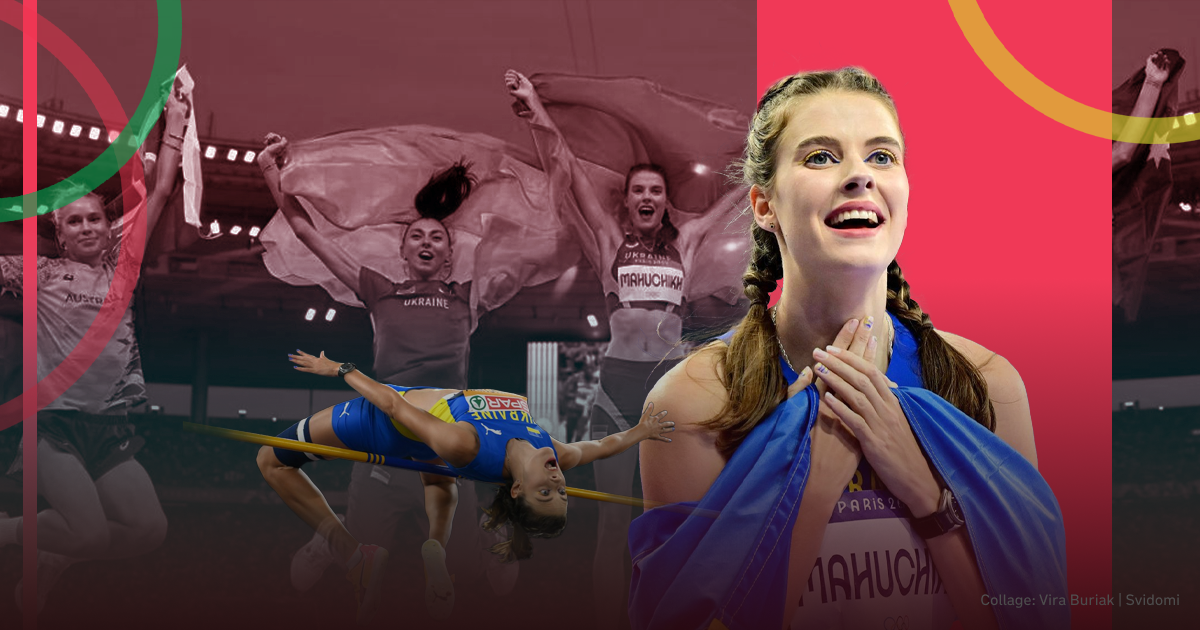
In the 2024 season, Yaroslava Mahuchikh won awards at all major international competitions. Yaroslava became the World Indoor Vice-Champion, won "gold" at the European Athletics Championships and Olympic Games, and triumphed in the Diamond League final.
In addition, at the Diamond League stage in Paris, Yaroslava broke a 37-year-old world record by clearing 2.10 meters. Mahuchikh was recently nominated for the title of the world's best athlete in 2024.
Svidomi tells the stories of our Olympic athletes in a series of interviews.
The path to setting a world record
— How did you get started in athletics?
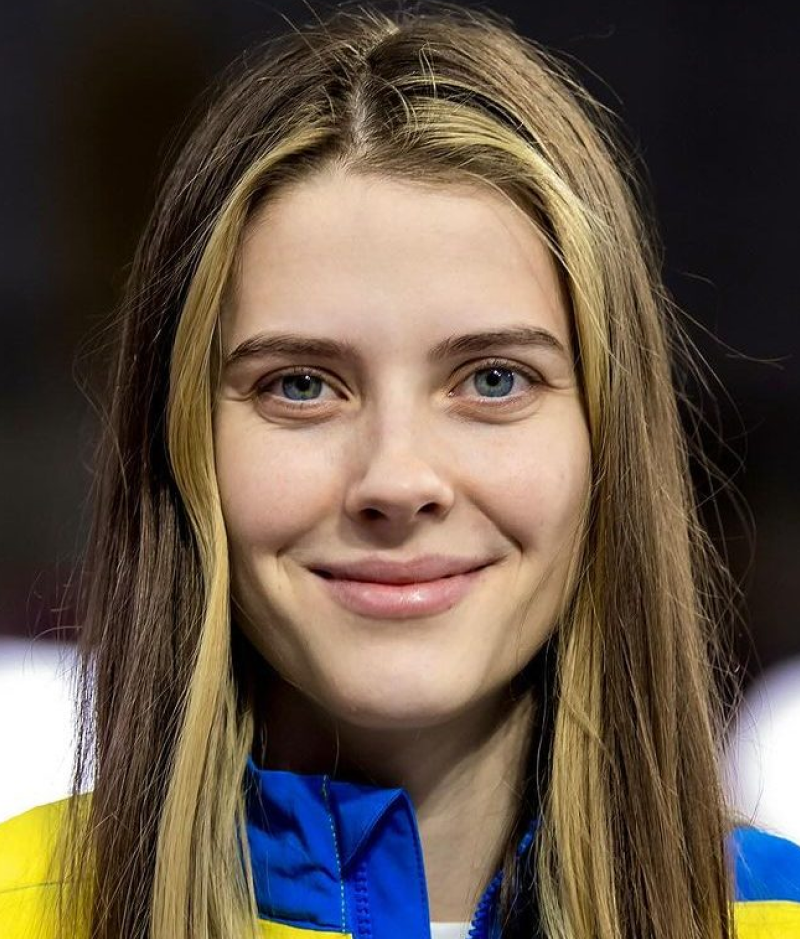
— My sister introduced me to athletics. She was practicing, and I was a very active kid, which interfered slightly with her exam preparation. So she decided to take me to one of her training sessions, and that's how my athletic career began.
I started training when I was seven years old, but at that time, let's say I wasn't in love with athletics enough to choose the path of a professional athlete. When I was 11, my coach, Tetiana Stepanova, came to the sports school and deepened my love for the sport. She is still my coach. As they say, we're in it together — and that's wonderful.
— You mentioned your coach, Tetiana Stepanova. Tell us more about your team.
— Actually, my team isn't very big, but we are all close, like a family. I have two coaches — Tetiana Volodymyrivna Stepanova and Serhii Petrovych Stepanov. Tetiana Volodymyrivna has been working with me since I was 11, and Serhii Petrovych joined after the full-scale invasion in 2022 to help with strength training.
I also have a physiotherapist, Vladyslav Pronin, who helps me recover, and my manager, who supports me in every situation and handles all the problems. These people always have my back. We are a team, close friends, and almost like a family.
— How did the full-scale invasion affect your training and preparation for the Olympics?
— It's mentally challenging to prepare for competitions when there's a war going on at home, and Ukrainian cities are being shelled every day. I was still in Ukraine during the first week of the full-scale invasion, and only later did our team decide to go to the World Championships in Belgrade. At the time, I thought I'd be back in a week or two because the war would end. But it didn't, and so began my journey of training abroad.
I was able to return home only six months later and only for a few weeks. It was difficult because my friends and family were in Ukraine while I was working and training to show results on the international stage. But my loved ones always supported me.
I also always knew why I was doing it. I represent our country and have the opportunity to tell the world that we continue to fight for our independence and freedom.
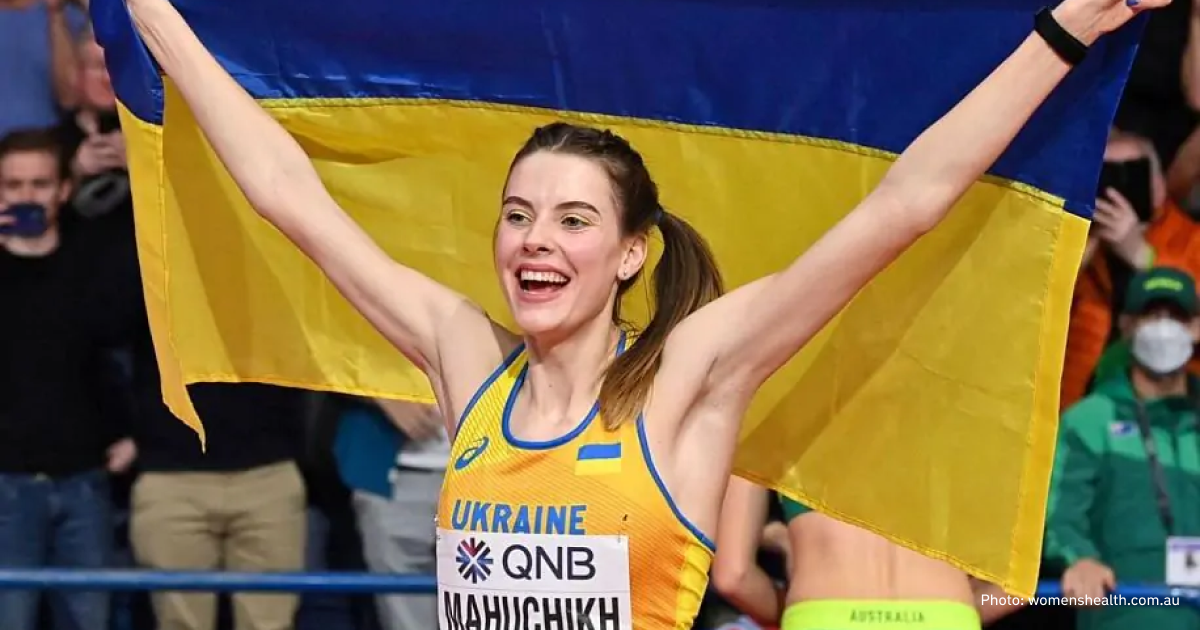
— During the Euro 2024 qualifiers in June, you had some problems with your leg. What happened, and did it affect the competition?
— It happened during my first competition of the season in Stockholm, where I felt pain in my leg during a jump. But a pole vaulter I share a manager with gave me the contact of a doctor in Rome, where the European Championships were taking place. We went for an examination and had to decide if I would compete.
The doctor said I had a small tear, so I was not allowed to jump at all. I was shocked because the season had just started, and I was already facing such difficulties. However, my team and my family supported me and were ready to accept whatever decision I made. Ultimately, I decided to race with my leg taped and an elastic band to reduce the load on it.
If I had felt severe pain, I wouldn't have jumped because the Olympics were coming up — the main event of the season. But everything turned out fine.
— Did the injury bother you during the Olympics?
— No, everything was fine until the Olympics. After the European Championships, we went to Estonia for tests and procedures. I tried not to put too much stress on my legs to recover in time for the Olympics.
But I recovered even faster — to the point where I set a world record. After the injury, I jumped 2.07 meters. Then the question arose — should I try for 2.10 meters? After all, I needed to be in top form for the Olympics, which we had been preparing for over three years.
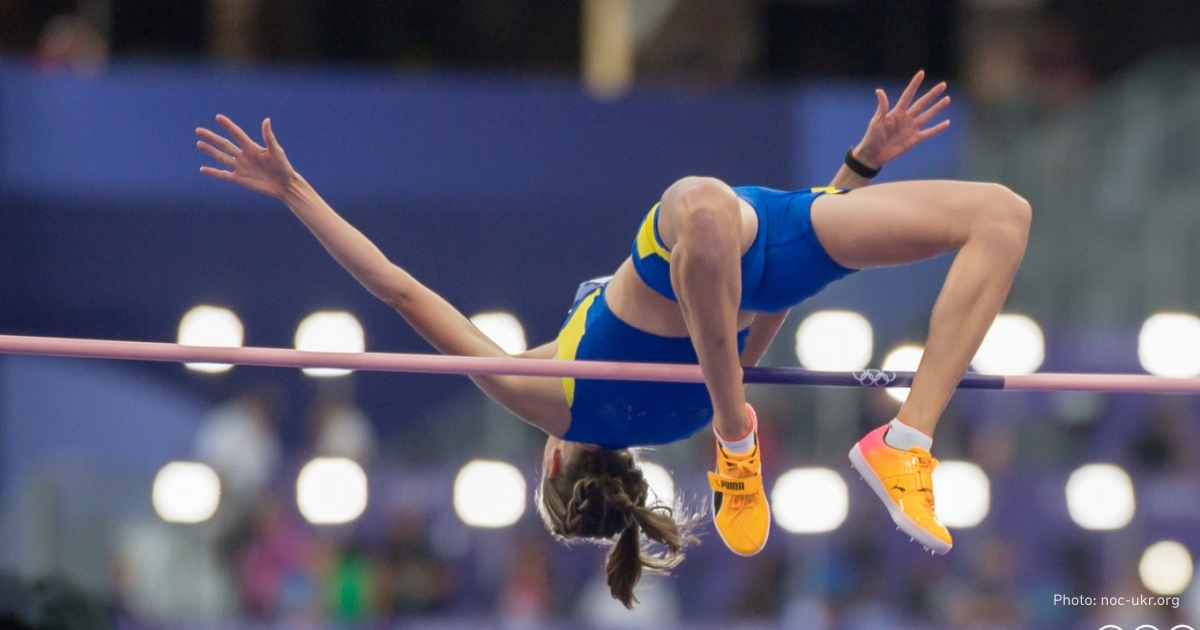
But at that moment, I felt that I had to jump 2.10 meters. I was convinced that I could break the record.
— The previous world record in women's high jump — 2.09 meters — was set by Bulgarian athlete Stefka Kostadinova and held for 37 years. This record was considered one of the "eternal" records
— Some said it would never be broken. They claimed that 2.09 meters was a result at the limit of human capabilities and one of the most enduring records in athletics. But the new record belongs to Ukraine — 2.10 meters. We worked long and hard for it. It wasn't just about physical preparation but also mental strength.
— What were you thinking about before the performance, and how did you prepare emotionally?
— I had a plan for my athletic career — to win an Olympic gold medal and set a new record. I had extra motivation since I'm an ambassador for the Puma brand, whose athletes often set almost impossible world records in athletics.
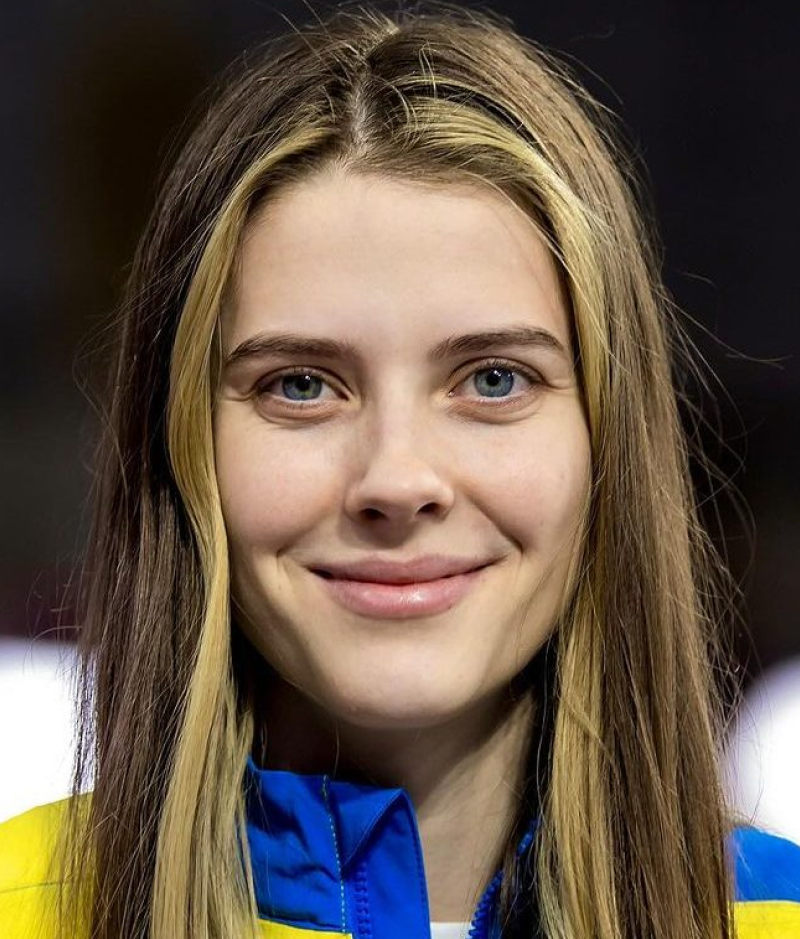
As you can see, anything is possible. I knew that one day, I would be among the world record holders. Just before my attempt, I realized how much joy it would bring to Ukrainians. It was also an excellent opportunity to remind the world about the war.
Besides, there were many news reports about shelling at that time. I kept telling myself that breaking the record would be great news and would make people feel a little happier.
— How did you prepare for the record? Did you change any of your training techniques?
— I changed my approach to my preparation twice this year. The first time was in the winter. My first two steps in the run-up used to be more like jumps, but we changed them to running steps. This paid off as I started the winter season with a 2.04-meter jump. This change gave me more speed but lacked the space to push off and jump.
We added two more steps to the run-up two years ago, but I didn't have enough power to run fast and push off properly. This year, it worked. It gave me more time to accelerate in the turn and make the last three to four steps fast and short. I used to have nine strides, but with the extra strides, it was 11.
Olympics 2024 and Yaroslava's first 'gold'
— The 2024 Olympics were your second career appearance, and you won your first Olympic gold. Did your previous experience help you during these games?
— It did because I already knew what would happen during the competition and understood the mental and emotional pressure. The Olympics are the most important competition in an athlete's career.
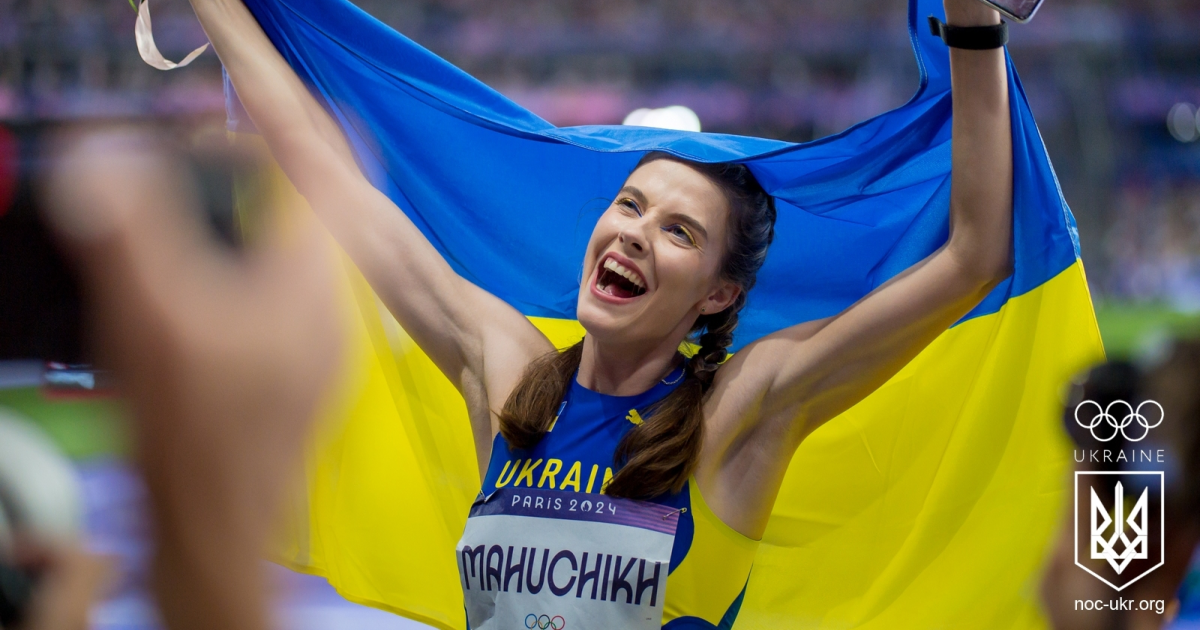
I went to my first Olympics in Tokyo as the season leader and won a bronze medal for our country. At that time, I was less experienced and afraid because of the great responsibility. I came to the second Olympics more confidently because I had set a world record.
— How do you deal with pre-competition anxiety?
— Right before the competition, I do my hair and makeup, which helps me calm down. Two days before, I start reading more books. I also try avoiding social media comments because they inevitably affect your mind.
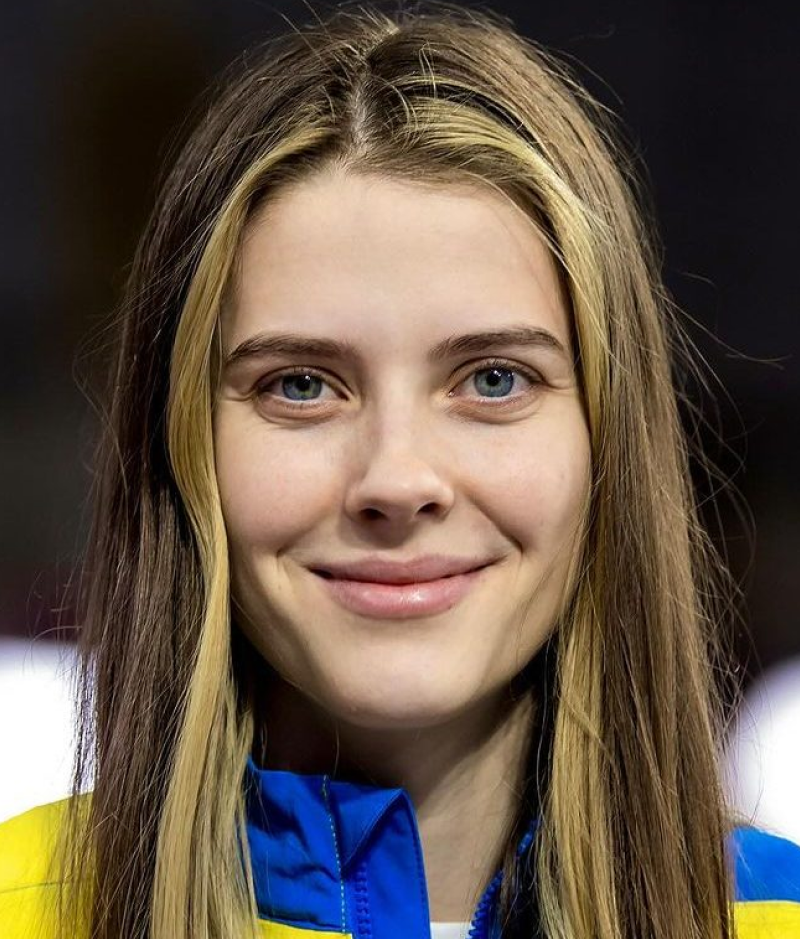
It's better not to read the comments under Olympic news at all because people usually don't hold back their emotions there.
— Tell us about the living conditions in the Olympic Village. What was your typical day like during the Olympics?
— The Olympic Village is a large area for running and training, and there are souvenir shops if you want to buy gifts. One of the sponsors this year was a coffee shop chain, so there were cafés all around where you could get coffee. There were also massage chairs to relax after a long day.
Athletes from different countries lived in separate buildings, so the Ukrainian team also lived together in one building.
The day started with me waking up and going to breakfast, where we ate and socialized. Then, I would go to warm up. The village had special shuttles for training, but I arrived at the Olympics just before qualification, so I went directly to the stadium for warm-ups.
Speaking of changes, this was the first year that the track and field events were held on a purple track. Usually, the tracks are red, blue, or light blue, but in 2024, they introduced a conceptually new track. All athletes came to the stadium to train on it.
— Some athletes train hard during the Olympics, while others try to rest as much as possible. What was your strategy?
— In reality, you can't drastically change your preparation right before a competition. The foundation is laid long before the competition season; during the season, you just maintain your form.
I chose to do something in between, meaning I didn't do any heavy training before the event. Most of my training consisted of warm-ups, regular high jump preparation, and some weight training right before the competition. But it wasn't as intense as it was two or three months before the event.
— How was the atmosphere between you and your colleagues or competitors?
— It was great to see athletes from different countries interacting and building relationships. Some athletes need to "shut down" before the main event of the season and hardly talk to anyone, but it helps them focus on the competition.
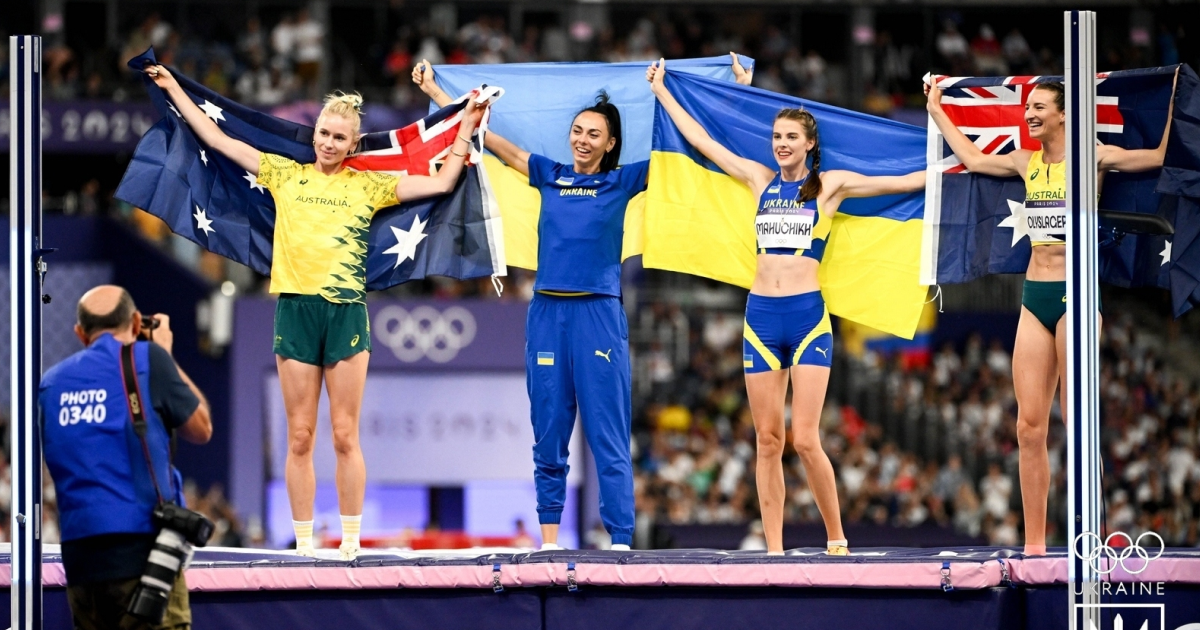
Overall, the Olympics brought together representatives of many sports, all eager to learn from their foreign counterparts.
— This year, the International Olympic Committee (IOC) allowed 15 athletes with Russian passports and 16 with Belarusian passports to compete under neutral status. What's your opinion about this decision?
— I was initially negative about this since the start of the full-scale invasion. Still, the president of the International Association of Athletics Federations, Sebastian Coe, immediately showed solidarity with the Ukrainian athletes and suspended the Russian and Belarusian athletes from the competition.
Ukrainian athletes also fought to keep them out of other sports, such as judo or tennis, but unfortunately, not all federations agreed, including Thomas Bach (the IOC president — ed). We felt a bit betrayed because he first expressed full solidarity with the Ukrainians. Later, he said the Russians should be allowed to compete because sports are for everyone.
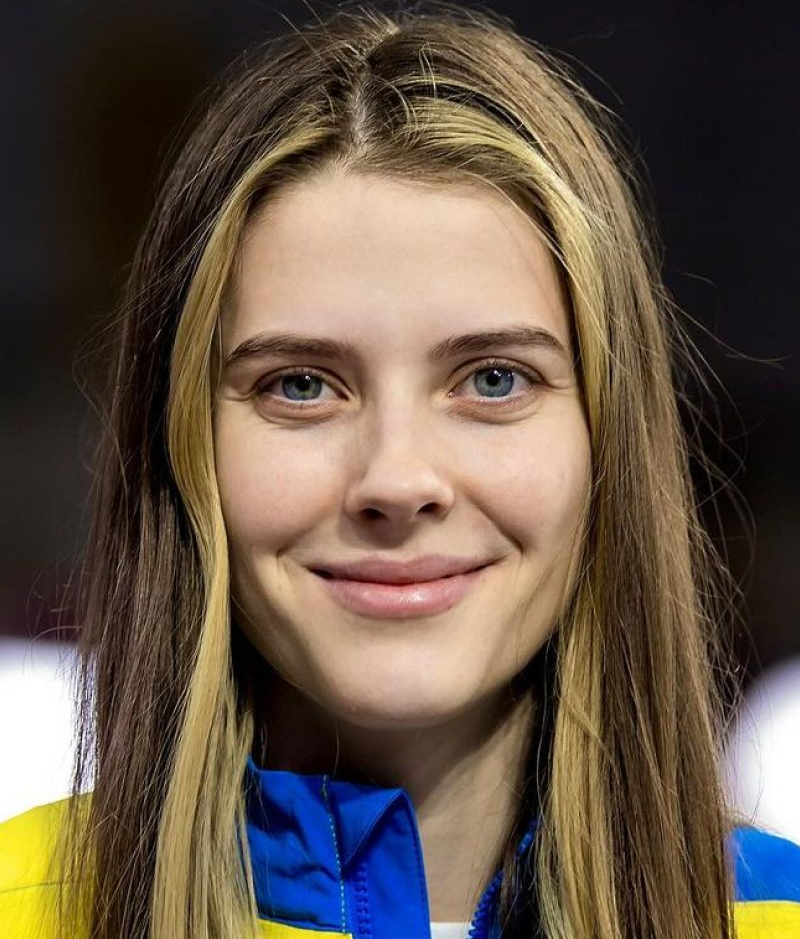
I don't know how terrorists who bomb cities every day and then deny their involvement can be permitted to participate in the Olympics.
Before the Olympics, Thomas Bach said that athletes would sign statements confirming their opposition to the war to be allowed to compete. It turned out that no one signed anything.
— How did the Russian athletes behave at the Olympics? Did you have any conflicts with them?
— Honestly, I haven't even seen them outside of the competitions. And that's for the best.
— Have you noticed any changes in the techniques of your competitors or any new athletes in your event?
— Not much has changed in my sport. There weren't any new names; we'd been competing against the same girls for several years and were all part of the same group.
However, there were innovations, such as financial rewards for athletes who won gold ($50,000 prize money — ed). Our federation was the only one to implement this at the 2024 Olympics, and they lobbied the committee for all federations to do the same.
— You donated half of your prize money (125,000 from the Ministry of Youth and Sports of Ukraine and 50,000 from the Athletics Federation — ed.) to your team and the other half to charity. Which charities did you support?
— I gave part of the money to my team because this is our joint achievement. We won the medal together. I donated 500,000 UAH (about $12,130 — ed.) to the Azov Angels fund and another 500,000 UAH to the Hospitallers fund for military recovery. I also sent 1 million UAH (approx. $24,267 — ed.) to Lachen's (Ihor Lachenkov, Ukrainian influencer, blogger, and volunteer — ed.) campaign to buy vehicles for the military.
The hardest part was deciding where to send the money because I had to find trustworthy people. Last year, I met Lachen at an event, and I knew that he had started a campaign for the army. I joined because I was sure the money would go to vehicles.
—Was it your first public donation?
— Yes, I had helped before but hadn't done it publicly, mostly sharing other people's campaigns. This time, though, I realized it was important to show it.
I also donated some of the money to help homeless animals. Many people leave their pets behind in frontline cities, where the animals are left to fend for themselves. I donated to the UAnimals fund, and they recommended vetted shelters that evacuate animals from frontline areas. By the way, one of the shelters was where I got my cat.
Plans for the future and the media as a means of attracting foreign attention to the Russo-Ukrainian war
— You mentioned that you often talk about the Russo-Ukrainian war abroad. How do foreigners react to the news about the war in Ukraine?
— They are still interested in the news, but less than in the first year of the invasion. Many foreigners are tired of the news, but I always tell them: "Do you think we aren't tired of losing our best people and living under constant shelling? Russia has occupied our territories and is bombing Ukrainian cities".
In fact, sometimes foreign journalists are more interested in what's happening in Ukraine than in the results of the competition. Of course, these results are a "push" for people to get interested in the war. When I set a world record and won Olympic gold, people wanted to know about the journey of a Ukrainian athlete.
— Are you preparing for the following competitions or taking a break?
— My season ended on September 14, and I plan to return to training in November. I rested for a week and then started working on social projects. Right now, I'm dedicating my time to interacting with journalists and traveling.
The 18th Conference of Ministers of Sport of the member states of the Council of Europe has just ended in Porto, where our minister argued for the continuation of the ban on Russian and Belarusian athletes from international arenas. I would like to talk more about Ukraine this time — especially after winning the Olympic gold.
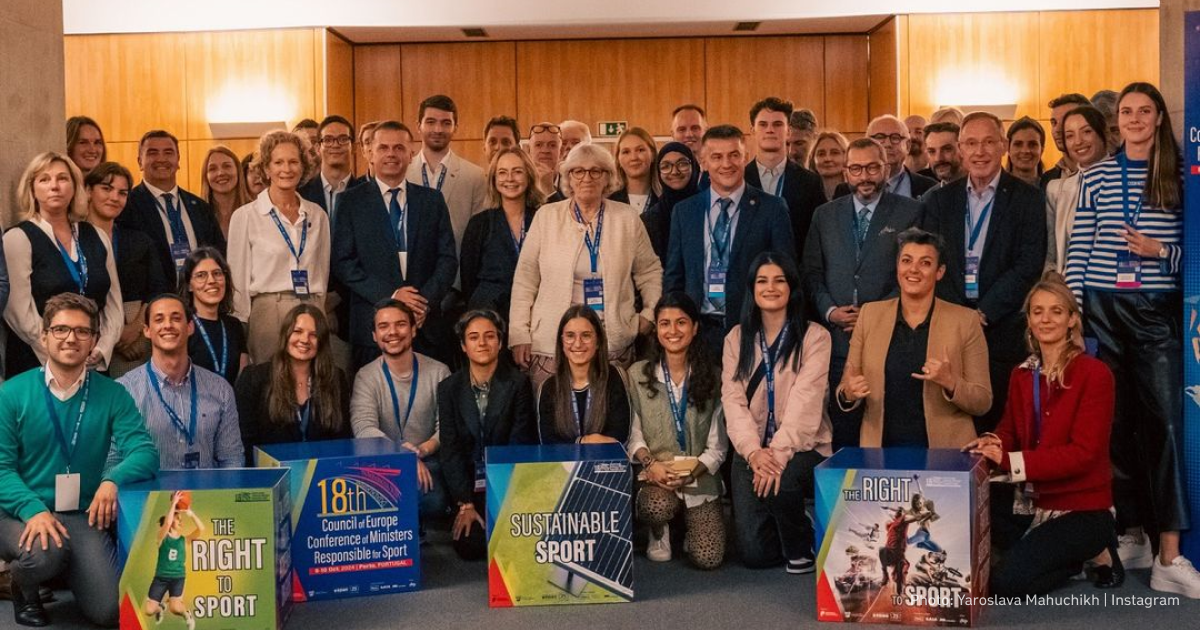
— You already have many awards from various competitions, Olympic gold, and a world record. What else would you like to achieve in your professional career?
— I would like to become a double Olympic champion. I also have an unfulfilled goal — to break the Olympic high jump record. An athlete from Russia holds the current record of 2.06 meters, so I have extra motivation to beat it.
I plan to participate in two more Olympic Games and hope to break that record.
Svidomi tells the stories of our Olympic athletes in a series of interviews
Read here

